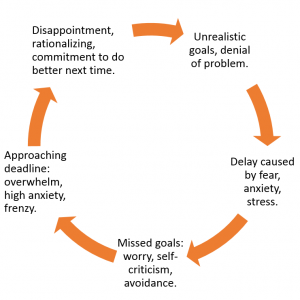
A collective noun refers to a group of people or things. Group, for example, is a collective noun. Legal writers often have to deal with collective nouns, and here are some of the most common: board, council, court, faculty, government, jury, majority, panel, and staff. When using collective nouns, writers occasionally face questions of subject-verb agreement and pronoun agreement. This post addresses both.
Subject-verb agreement
The key question is whether to treat collective nouns as singular or plural. Should we write the jury is or the jury are? Although a jury, like all collective nouns, is a group of individuals, the better practice is to treat collective nouns as singular and to write the jury is, as well as the council decides, the panel hears, and so on.
But the experts agree that it’s not always that simple. According to Bryan Garner, in the United States, we usually treat collective nouns as a singular unit and use the singular verb. “But if the emphasis is on the individuals in the group, the plural verb form is best.”1 The editors of Merriam-Webster’s English Usage Dictionary agree: “[W]hen the group is considered as a unit, the singular verb is used; when it is thought of as a collection of individuals, the plural verb is used.”2
By the way, British English is different, and I won’t address it here except to say that when I watch a football match (soccer game) with British commentators, it’s always jarring to hear them say, “Chelsea’s team are very talented.”
So in the Unites States, if you’re writing about faculty, you might write this:
a. The faculty [as a singular entity] gratefully acknowledges the assistance of volunteer judges.
But this:
b. The faculty [individually] are of different minds on the subject of pass-fail courses.
Another example:
c. The consultant will study how staff [as a singular entity] in rural hospitals gathers and evaluates the performance of doctors with clinical privileges.
But then this:
d. The staff in rural hospitals [individually] create performance-assessment reports.
As you can see, it can be tricky to decide if you’re thinking of a collective noun singularly or individually, and even more tricky to decide how your reader will perceive it. That’s why the safest practice is to treat collective nouns as singular entities that take singular verbs and to do so consistently within any one document.
A frequent and widely recommended work-around is to use “members” or “members of,” which clarifies the proper verb. So the jury was seated in the hallway becomes the members of the jury were seated in the hallway. And the board meets on the first Thursday becomes the board members meet on the first Thursday. This work-around is useful even if it causes a small loss of concision.
Pronoun agreement
If collective nouns are generally singular, they should take the pronouns it and its, not they, them, or their.
Wrong: The council needed to review the transcript before they could vote.
Right: The council needed to review the transcript before it could vote.
Treating a court as plural is a fairly common error among novice legal writers:
Wrong: The court must first determine whether they have jurisdiction.
Right: The court must first determine whether it has jurisdiction.
This error might arise from the perception that intermediate appellate courts often hear cases in panels of three and that highest courts often hear cases as a body of nine. Yet the court is a singular entity, no matter how many judges make it up. If the writer is thinking of the judges individually, it would be better to write this: The judges must first determine if they have jurisdiction.
Collective nouns are generally singular and take singular verbs and pronouns. If you think you have an exception, go ahead, but use your best editorial judgment and get a second opinion.
[1] Bryan A. Garner, Garner’s Dictionary of Legal Usage 172 (3d ed. 2011).
[2] Merriam-Webster’s Dictionary of English Usage 257 (1994).

